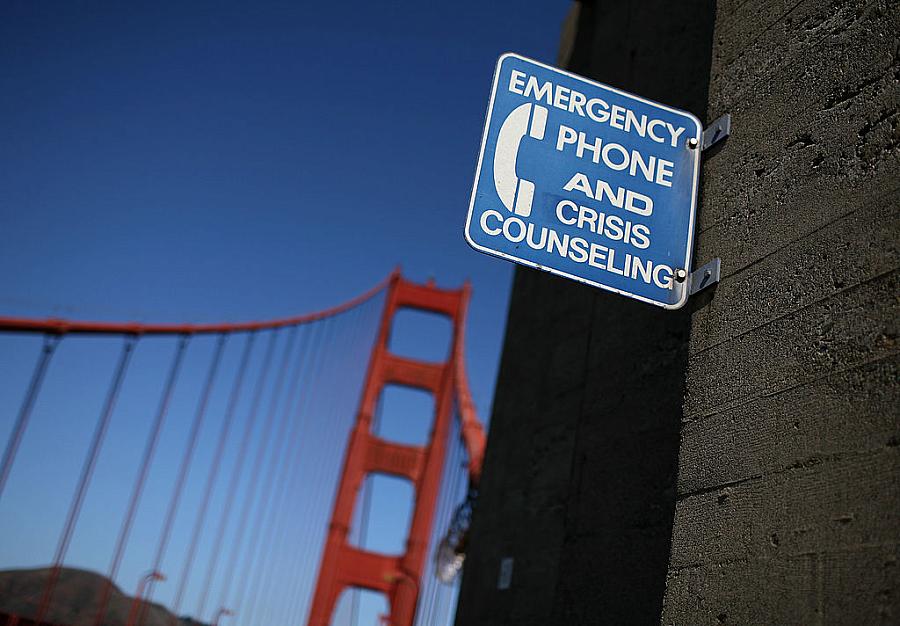Will the new national 988 hotline improve the response to mental health crises?

(Photo by Justin Sullivan/Getty Images)
Communities across the country have pushed for years to divert emergency mental health calls away from 911 and police. Now, as the nation launches the 988 calling code for mental health crises, some advocates wonder if the system is ready to deliver real-time, culturally appropriate services to meet the immense demand.
In 2020, Congress passed the National Suicide Hotline Designation Act establishing 988 as the universal number to call for free help in a mental health crisis. President Biden set July 16 as the launch date. With funding from the American Rescue Plan, the White House distributed $180 million to municipalities to create “community-based mobile crisis response and crisis stabilizing facilities.”
The goal is to minimize emergency room visits for mental health crises and provide an alternative to calling 911 for assistance.
“I’m very happy that the state [government agencies] are recognizing that police are not sufficient and sometimes incompetent,” said Cosette Ayele, organizing director of Raheem, a nonprofit that began an independent reporting service on police violence and recently created PATCH – People And Technology for Community Health — a coalition of organizations across the U.S. and Canada that help people get emergency services without police intervention. “I feel that 988 is coming from this space that is recognizing that there are a lot of people who are not receiving care and that we are heavily relying on 911 to respond to people’s needs,” Ayele said.
But excitement about the network has been mixed with concerns about implementation and staff training. Community groups on the front line of the movement to move mental health crisis calls away from the police say they weren’t consulted about best practices during the initial planning of 988. They are concerned that hotline staff may not be fully prepared to respond to communities of color in culturally appropriate ways.
“We want to be a part of the 988 process,” Ayele said. “I think it’s important that organizations like ours be prepared with trainings that we can offer to support the development of 988 centers.”
In a Rand Corporation survey of officials in 180 municipalities, released in June, more than half said they had not been involved in planning for 988, and only 16% had developed a budget to support the hotline’s operations. Fewer than half the localities had a short-term crisis stabilization program and only 28% had urgent care units for mental health. Most of the municipalities had a mental health emergency hotline operating locally, though few are connected with the 988 network, and most of those crisis lines have staff trained specifically to work with children and adolescents. But only a minority have training to respond to other high-risk populations such as LGBTQ+ people or people experiencing homelessness.
The federal Substance Abuse and Mental Health Services Administration (SAMHSA) has created the foundation for building the centers and working with community partners. Pilot programs have been tested in several states. In spite of the urgency, surveys show that fewer than half the states have passed legislation to support implementation and funding through a telephone surcharge.
Ideally, 988 should be the what the Washington Post calls the “911 of mental health." When an emergency arises, the hotline should be accessible through local government agencies via phone, chat or text. A caller should be connected to a counselor who assesses the problem and the level of threat and determines whether the person needs only to talk or if a crisis team should be dispatched. There is no need for police involvement, an issue of longstanding and growing concern in Black communities.
In a poll commissioned by the National Alliance on Mental Illness in June, 85% of Black Americans said they would be afraid the police might hurt them or their loved ones while responding to a mental health crisis. The poll also found that at least seven in 10 Americans believe that mental health crisis responses must be improved for people of color, LGBTQ people, people experiencing homelessness, and people who live in low-income communities.
Reporters should track 988 funding and implementation in their communities. Is your crisis delivering on its promise to take police out of mental health emergency response, end the criminalization of people of color in crisis, and get all people who are struggling the support and care they need?
**
